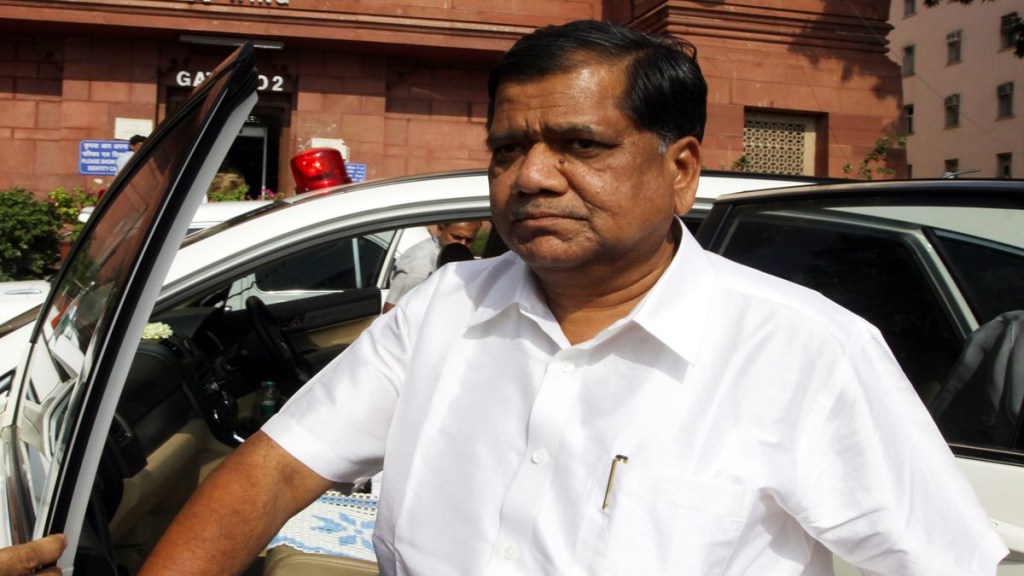When the Bharatiya Janata Party (BJP) high command on Tuesday asked former Karnataka chief minister Jagadish Shettar not to contest from the Hubballi-Dharwad Central constituency (earlier Hubballi Rural) which he has been representing continuously since 1994, Shettar revolted and made his stand clear that he would contest and would be active in politics for another 10-15 years.
Shettar, who comes from a family having close links with Jan Sangh, the RSS and the BJP, was always a humble and unassuming leader. But this time, he is a rebel with a cause and refuses to give in to the BJP leadership.
Stint as Karnataka CM
In July 2011, when BS Yeddyurappa was forced to quit as Karnataka Chief Minister after being asked to step down immediately following his indictment by the Lokayukta in the illegal mining case in the state, the leader of the powerful Lingayat community ruled out Shettar, another Lingayat leader and Rural Development and Panchayat Raj Minister in his cabinet, as his successor.
Instead, Yeddyurappa hand-picked the non-controversial DV Sadananda Gowda, who is from the Vokkaliga community, as his replacement.
A year later when the BJP’s first chief minister in Karnataka fell out with his protege and successor Gowda, as he was keen on exerting his own influence and developing a camp of supporters, Yeddyurappa decided it was time for a change.
Yeddyurappa opted for Shettar, his one time rival, as the BJP refused to reinstate him as head of the government.
Shettar was the right man at the right moment at the right place and, crucially, from the right community, which is a powerful and rich vote bank.
Many believed at that time that Yeddyurappa being active in Karnataka politics, Shettar might not have actual power.
However, Shettar’s tenure as Chief Minister was short-lived after the BJP’s humiliating defeat in 2013 and he resigned in May 2013.
Entry into politics
Shettar began his public life with the Akhil Bharatiya Vidyarthi Parishad (ABVP) and then became an active member of the Rashtriya Swayamsevak Sangh (RSS).
In 1990, Shettar became president of the Hubballi Rural unit of the BJP.
His rise through the ranks within the BJP was swift and he was elected to be the president of the Hubballi Rural unit in 1990. In 1994, he became the president of the Dharwad district unit of the party.
He was elected to be a member of the legislative assembly from the Hubballi-Dharwad Central constituency for four consecutive times with the first term being in 1994.
In 1996, Shettar was made the secretary of the BJP in Karnataka, and in 1999, during SM Krishna’s tenure as Chief Minister, Shettar was the leader of the Opposition in the Assembly.
In 2005, he was elected the state president of the BJP in Karnataka, and the next year he was promoted to the cabinet as Revenue Minister.
In 2008, he was elected as the Speaker of Karnataka Vidhan Sabha, the first BJP leader to hold the position in a southern state.
In 2009, he was given the portfolio of Rural Development and Panchayat Raj in the Yeddyurappa government.
During his tenure as a politician, Shettar played a major role in setting up the headquarters of the Southern Railway System of India in Hubbali-Dharwad, Khalasa Banduri project and the setting up of Suvarna Vidhana Soudha in Belgaum.
His involvement with the projects reflected his interest in developing Karnataka as one whole entity instead of focusing funds and energy on the capital of Karnataka, Bangalore.
Earliest political influences
Born on December 17, 1955 in Kerur village in north Karnataka’s Bagalkot district, Shettar’s father and uncle chose to align themselves with the RSS, the ABVP, Jan Sangh and the BJP.
His father S S Shettar was elected to the Hubballi-Dharwad City Corporation five times in a row, and also served as Mayor for one term.
His uncle Sadashiv Shettar was MLA from the Hubbali constituency in the year 1967 – the first to be elected on a Jan Sangh ticket to the Karnataka Assembly.
Personal life
Shettar has a Bachelors in Commerce deagree as well as a law degree. He practiced as a lawyer at the Hubli Bar for nearly 20 years before politics got the better of him. He married Shilpa in 1984 and the couple have two sons – Prashant and Sankalp.

